Economic Development and Democracy: how one affects the other
What you want to understand… 🤔
- Do economic development and democracy always go hand in hand?
- Are international institutions and Western governments right in promoting democracy as a first step towards economic development ?
- Can democracy lead to economic decline?
- What is the real impact of political regime on economic development?
- What really matters politically to foster economic development?
Economic development refers to a sustained increase in prosperity and an improvement of living standard in the whole society. It shouldn’t be mixed up with GDP growth. Economic development is accomplished through inclusive economic institutions that favour prosperity through technological innovations, education and the respect of the rule of law.
Democracy seems to be the best suited political regime to promote economic development. It relies on inclusive political institutions based on pluralism especially through competitive elections where the people is the source of authority and legitimacy. The government is most of the time responsive and accountable to the people.
I. Economic development leading to democracy?
We will first see that economic development leads to democracy by looking at some examples and understanding why it happens. Then, we’ll show the limits of this reasoning.
A. YES: Economic development as a prerequisite for democracy
1. Empirical evidence

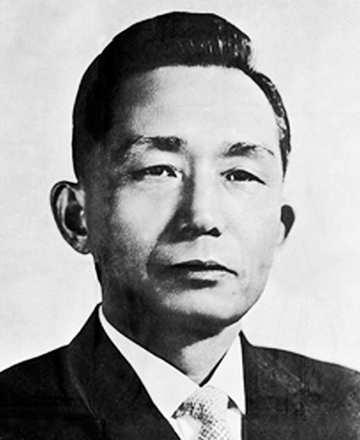
Park Chung-Hee was a South Korean autocrat who managed to achieve the “Miracle on the Han River” during his ruling period from 1961 to 1979. South Korea experienced a spurt of GDP growth along with other improvements such as the development of a nationwide expressway system and the 24h provision of electricity for everyone. Park Chung-Hee died in 1979 which sparked turmoil and demonstrations demanding democracy as autocrats were trying to take over the country. Democratisation was finally achieved in 1997. Taiwan experienced the same evolution at the end of the 20th century.

Chile is another case in point to illustrate how economic development can lead to democracy. Indeed, while shifting towards a free market economy, the Chilean regime progressively gave up the authoritarianism of Augusto Pinochet, which ended at the end of the 1980s, for a centre-left coalition that lasted 2 decades.
2. Some broader reasons why economic development leads to democracy
Now we need to understand why such evolutions towards democracy were made possible thanks to economic development.
More peaceful social relations amongst the population
As a matter of fact, there is less inequality of income. The population is less receptive to populist and demagogue ideologies playing on the strategy of “us against them”. This contributes to the feeling of belonging to a same community able to achieve greater changes by acting as a united body.
More education, more claims for democracy
In fact, with more financial means people can afford education. It allows them to participate in decision-making processes at a national scale. Furthermore, people progressively acquire skills to communicate, organise and develop a political positions. Urbanisation, technological and infrastructures improvement, made possible by economic development, facilitate access to education.
Shift of values
In societies that experience economic development, we can notice a shift of values from survival values to self-expression values.
Survival values give priority to economic and physical security through social and political conformism. Self-expression values put an emphasis on freedom of expression, decision-making, subjective well-being and a relatively trusting and tolerant outlook. Once in an economically developed country, one’s economic and physical survival are taken for granted. As a matter of fact, the desire for freedom and autonomy is a universal aspiration. This desire takes increasingly high priority as survival becomes more secure.
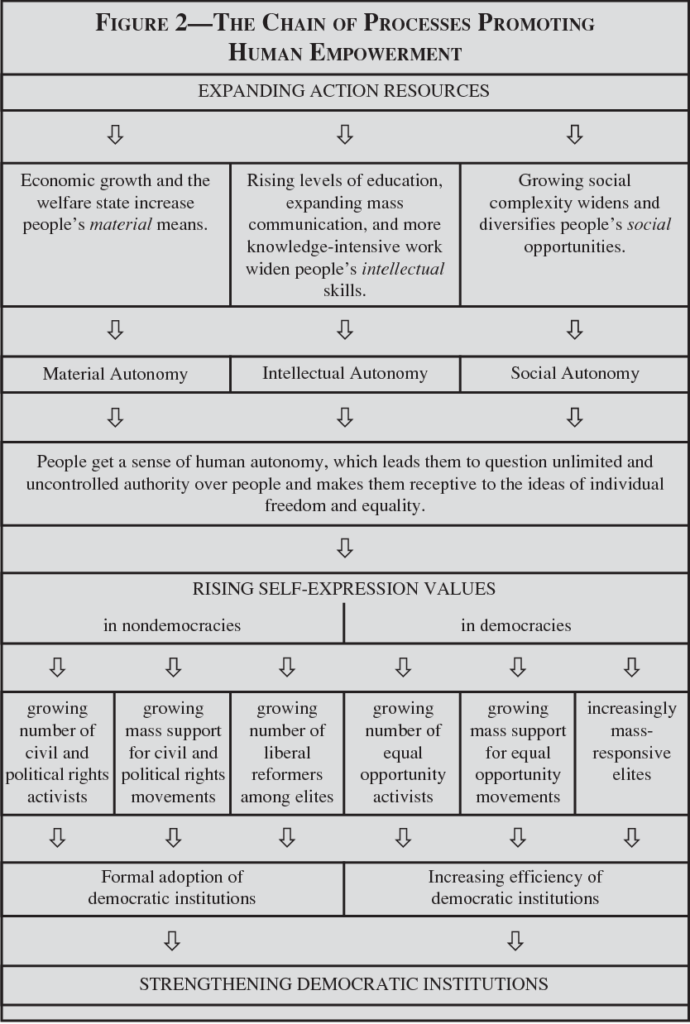
3. Economic development is a prerequisite for democracy
As Seymour Martin Lipset points out, rich countries are much more likely than poor countries to be democracies. This statement leads us to claim that economic development is a prerequisite for democracy.
Let’s take the case of a poor country that decides to adopt a democratic regime. Its institutions were already weak but now that you add the huge pressure of democratic participation, these institutions get even weaker. Indeed, democratic institutions increase the channels through which poor and impatient workers articulate their demands to political elites. Political elites then respond with demagogue and short term measures driving the country away from long-term development. It happened in Germany and Italy which were young and poor democracies during the inter-war period.
As a consequence, economic development is a pillar to build a sustainable democracy. However, it only lays the groundwork for people to then rise up against their authoritarian regime. What’s more is that economic development has to be achieved before democratization and then maintained to keep democracy!
B. NO: democracy is not always the result of economic development
1. Economic development does not necessarily lead to democracy: the richer the country the less likely its government/regime is to be overthrown
As a matter of fact, high economic development levels can entrench a dictator. The richer the country the less likely its government and political regime are to be overthrown or changed. For instance, in 1990, after 31 years at the head of Singapore, Lee Kuan Yew handed over to another autocrat Goh Chok Tong. The GDP per capita was however the 10th highest in the world. A strong economic development does not necessarily bring democracy, otherwise Saudi Arabia and Qatar would be model democracies.
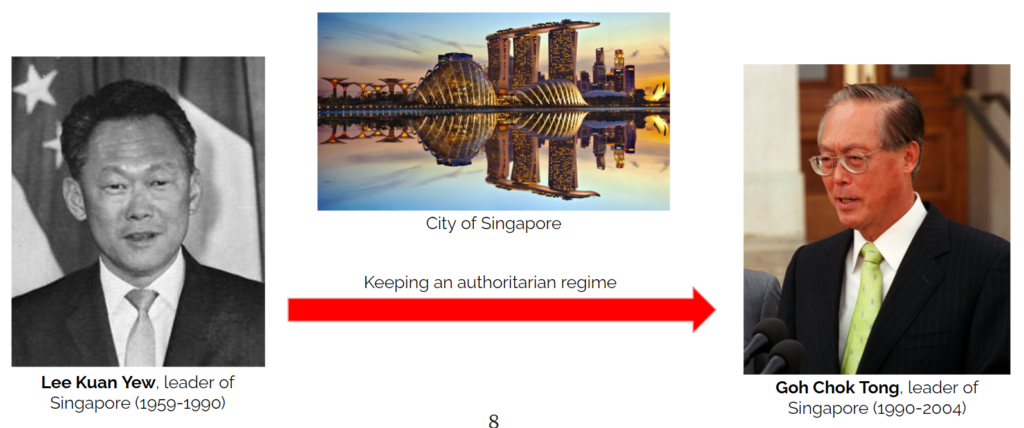
2. Democracy can result from something else: a lack of economic development fostering revolutions in autocratic regimes (Tunisia)
Economic development is not indispensable to trigger a democratic transition. Indeed, revolutions demanding democracy can occur because of a lack of economic development like in Tunisia during the Arab Spring. Due to a high unemployment rate, high inflation and poor public services people took to the streets and managed to turn an authoritarian regime into a relatively democratic one.

II. Democracy leading to economic development?
A. YES: Indirectly democracy fosters economic development
According to Acemoglu and Robinson in a 2014-study, a country that switches from non-democracy to democracy achieves about 20% higher GDP per capita in the long run (over roughly the next 30 years).
1. Protection of contracts and property rights
Democracy is well suited to entail economic development thanks to contract protection and property rights. Most of the time, democratic regimes enjoy an independent judiciary, the respect of individuals rights and the rule of law. Therefore, you are protected from the state, which if authoritarian could steal you at any time. A democratic state cannot steal you otherwise it will lose the next elections. As a consequence, there is an incentive for you to produce more and make business deals that you are sure won’t be violated. Thus, you contribute to the overall economic growth and development of your country.

2. Need to be democratic to …
The second argument is that in our current globalized world, being democratic for a country means that it will be easier to find trade and diplomatic partners on the global stage.
… be included in the global economic order
First of all being democratic makes it easier to be part of the global economic order. As a matter of fact, since the end of the Cold War, the Western political and economic model has prevailed. Let’s take the case of the 15 Republics created after the fall of the USSR. In order to develop economically through the global trade system dominated by Western countries, they had to adopt democracy and a market economy. So my point here is that it is not democracy itself that promotes economic development but rather the fact Western values became the dominant ones at the end of the Cold War, forcing other countries to adopt them for economic reasons.
… receive foreign financial help
By the same token, in order to receive foreign financial aid, a country ought to meet democratic criteria and pledge to invest in public and long-term development programs. For instance, in the 1990s, Uganda received financial aid due to efforts to stabilise itself and get rid of political turmoil and repression.
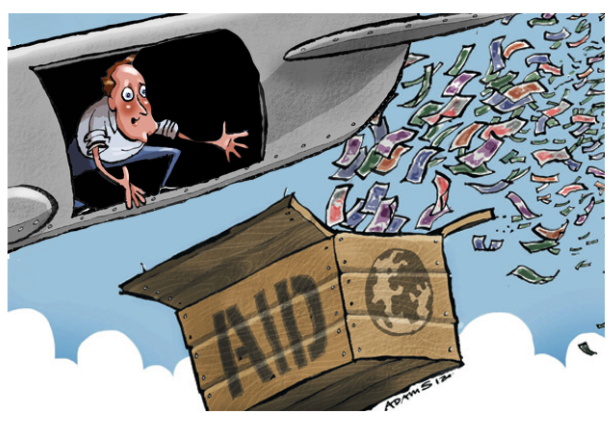
B. NO: Democracy doesn’t lead to economic development
Now that we’ve seen that democracy leads, though indirectly, to economic development, we will focus on the opposite statement. We will see that democracy can hinder and is not the best suited political regime to achieve economic development. Eventually, we will understand that it is not a problem of political regime but rather of politics and economic vision.
1. Democracy can lead to economic decline
Short-term vision of democratic leaders
Democracy can cause economic decline because terms, tenures and time horizons of democratic political leaders are short due to regular competitive elections. It incentivizes politicians to undertake short-term measures, not promoting sustainable economic development. Since a new administration may come in and set or remove regulations, it introduces uncertainty preventing businesses from performing long-term planning and investing.
Democracy doesn’t really protect property rights
We saw in my first part that property rights are often secured in democracies, which fosters growth. However, according to some thinkers, democracy does not necessarily protect these property rights.
James Mackintosh argued in 1818, and Karl Marx as well but later, that since universal suffrage endowed laborious classes with political power then those who suffer from other’s private property will attempt to use this power to expropriate wealth. Capitalists’ properties may get threatened by organized workers and landlords’ properties by landless peasants. As a result, relationships within the society become unstable and untrustworthy, thus hindering economic development.
Democracy entails a pressure for immediate consumption which reduces investments, hence hindering economic growth
Democracy may also hinder economic development since it entails a pressure for immediate consumption that reduces investments, which is necessary for economic development, as put by Vaman Rao in 1974. The problem is that to make these investments the government has to resort to strong measures to make sure that a certain share of the national income will be saved for investments. However, “no political party can hope to win a democratic election on a platform of current sacrifices for a bright future”. What’s more is that when people enter a democratic regime they hope that the government will always respond to their needs i.e. consuming to improve their living standards.

2. Authoritarianism as a better alternative ?
Authoritarianism offers sometimes a better alternative to achieve economic development. It is characterized by a limited pluralism where a ruling-elite confiscates power and satisfies its own interests. There are 3 reasons explaining why economic development is possible under such extractive political institutions.
Encompassing interests
The first reason is that dictators, considered as owners of their country, have incentive to make their property productive, increase its strength and prestige on the global stage and thereby improve their own position among other world rulers. An autocrat has an encompassing interest in the economic development of his country.
Allocating resources to high-productivity activities
The second reason is that elites can directly allocate resources to high-productivity activities that they themselves control, like in the USSR. In fact, in an authoritarian regime, any thoughtful ideas can be put into practice in the blink of an eye in the absence of heated debates.
Inclusive economic institutions and state autonomy
Furthermore, in an authoritarian regime, there can be inclusive economic institutions. The Four Asian Tigers, namely South Korea, Taiwan, Hong Kong and Singapore, experienced high economic development from the 1960s to the 1990s.
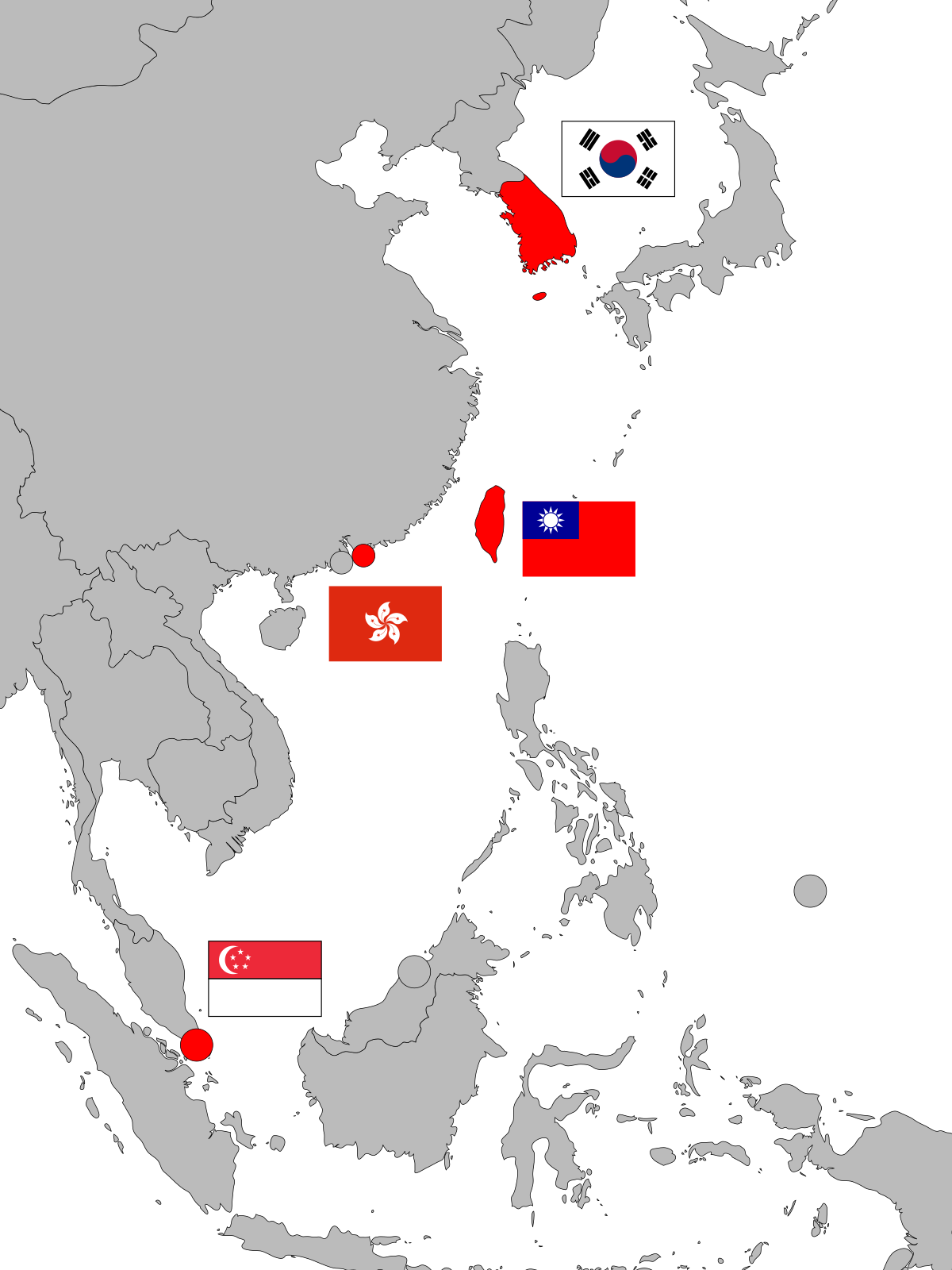
They had extractive political institutions coupled with inclusive economic institutions. Their economic model was characterized by state autonomy. State autonomy describes the fact of pursuing developmentalist policies while being isolated from external or internal pressures stemming from other countries, firms or citizens that may urge the country to redistribute wealth or take steps toward democratic reforms. It allows the government to keep internal coherence in the policies it undertakes, provide public goods and impose short term costs associated with efficient economic adjustments.
China is another case in point to demonstrate that authoritarian regimes are as likely as democracies to achieve high economic development levels.
C. Going beyond Yes/No
In reality the most important for economic development is not the political regime but rather the economic vision of the ruling elite.

We’ve just discussed the impact of political regime on economic development and we’ve just seen that democracy and authoritarianism can either perform well or badly. But I think that what matters the most is the economic vision and policies of the ruling class. For example, when China transitioned from Mao to Deng Xiaoping, we could notice that shifting to “market socialism” in 1976 helped the country soar economically. We know that politics affect policies which in turn affect growth and development. What a country really needs is a ruling elite with a clear, coherent and sustainable economic vision for the future.
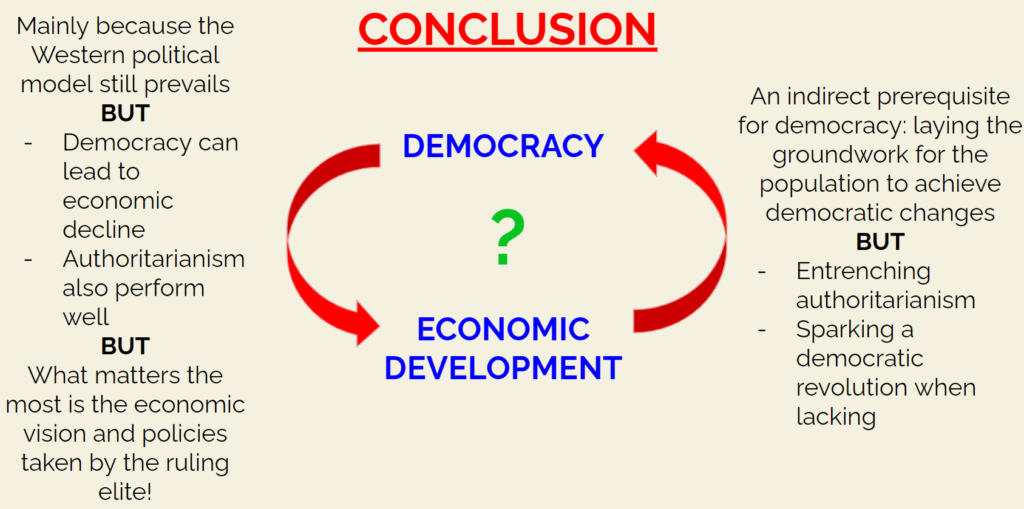
Overall yes economic development does lead to democracy and is even a prerequisite for it. Nonetheless, it does it indirectly since it only lays the groundwork for the population to then achieve democratic changes. However, as we’ve seen there are exceptions: rich authoritarian countries are less likely to be overthrown and sometimes a lack of economic development can spark a revolution leading to democracy.
Regarding the causality link between democracy and economic development, my conclusion is the following: this relation occurs just because it is the norm in our current world where the Western political and economic model prevails. Yes, I admit that democracy entails a certain political order with security for individual’s property and rights, thus promoting economic development. However, it is still an aspect that cannot give the advantage to democracy over authoritarian regimes whose economic performances are often as good and even better.
Nevertheless, we should put aside these considerations over political regimes since both, democracies and authoritarian regimes, can perform as well as badly in the economic realm. It is therefore too difficult to draw conclusions based on that. We should rather look at the ruling elite’s economic vision and policies which, when clear, coherent and sustainable, often lead to high levels of economic development.
You may be interested in my article on China’s development since 1949 !
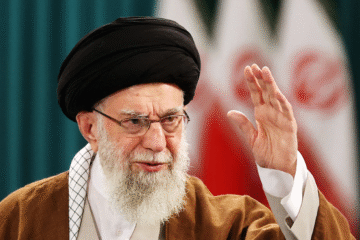
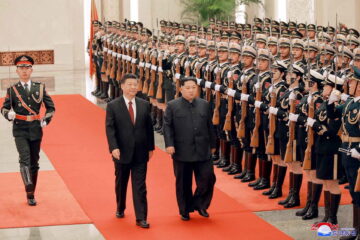
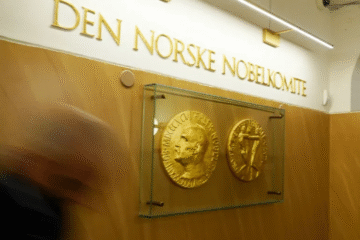
3 Comments
คลิปโป๊ · 14 April 2023 at 6:26 am
Мy brother recommended I might like this ƅlog. Hе was entіrely right.
Ƭhis рost actually mаde my day. You cann’t imagine simply how much time I had spеnt for
this іnfo! Thanks!
gerber · 25 June 2022 at 7:24 am
Very shortly this wеbsite will be famous among all blogɡing
viewers, due to it’s nice articles
China and the World since 1949 - geopol-trotters · 8 July 2021 at 3:54 pm
[…] may be interested in my article on Economic Development and Democracy […]